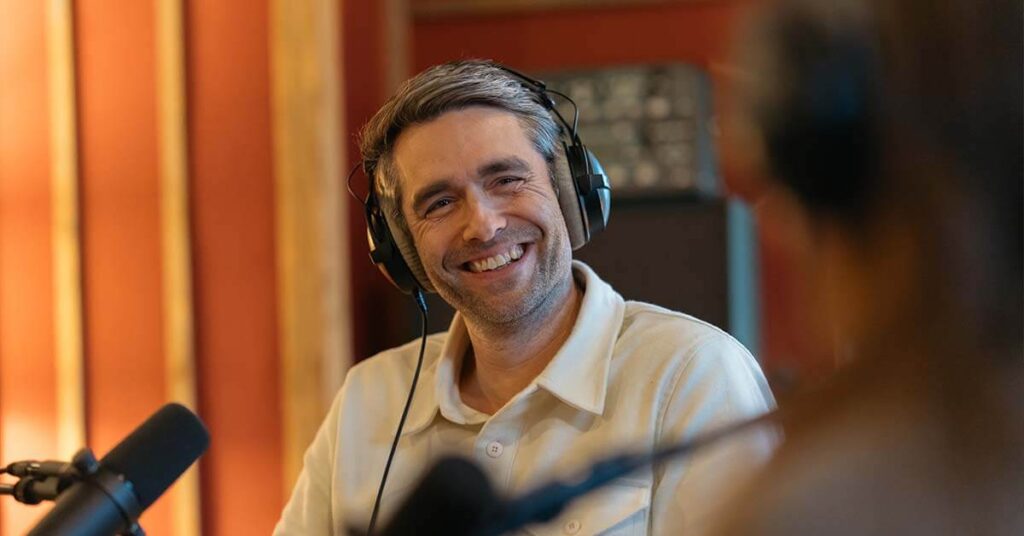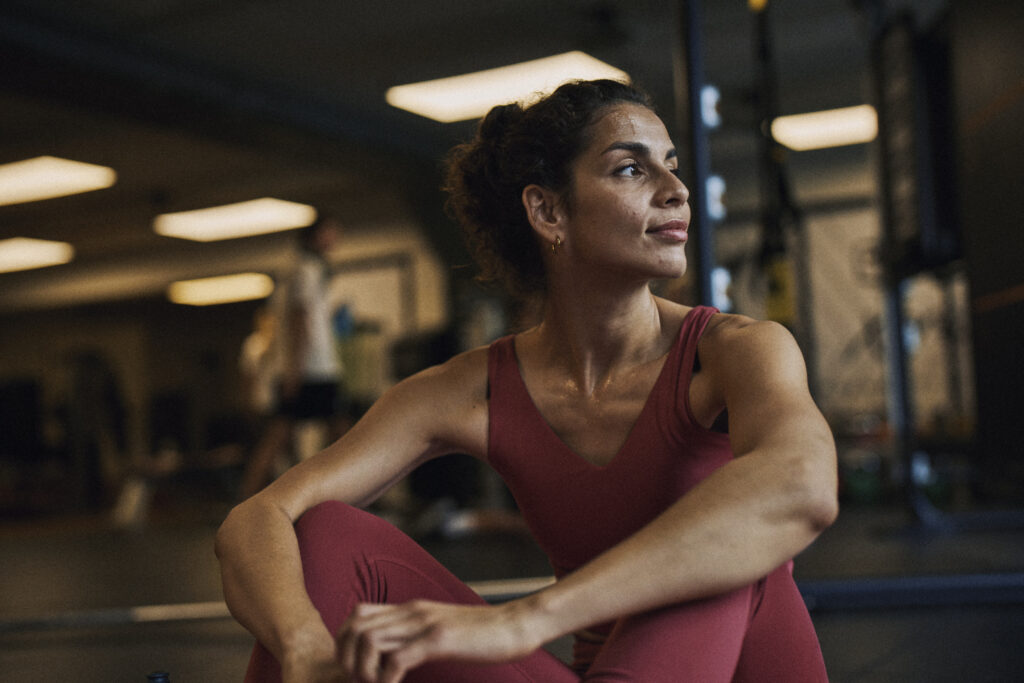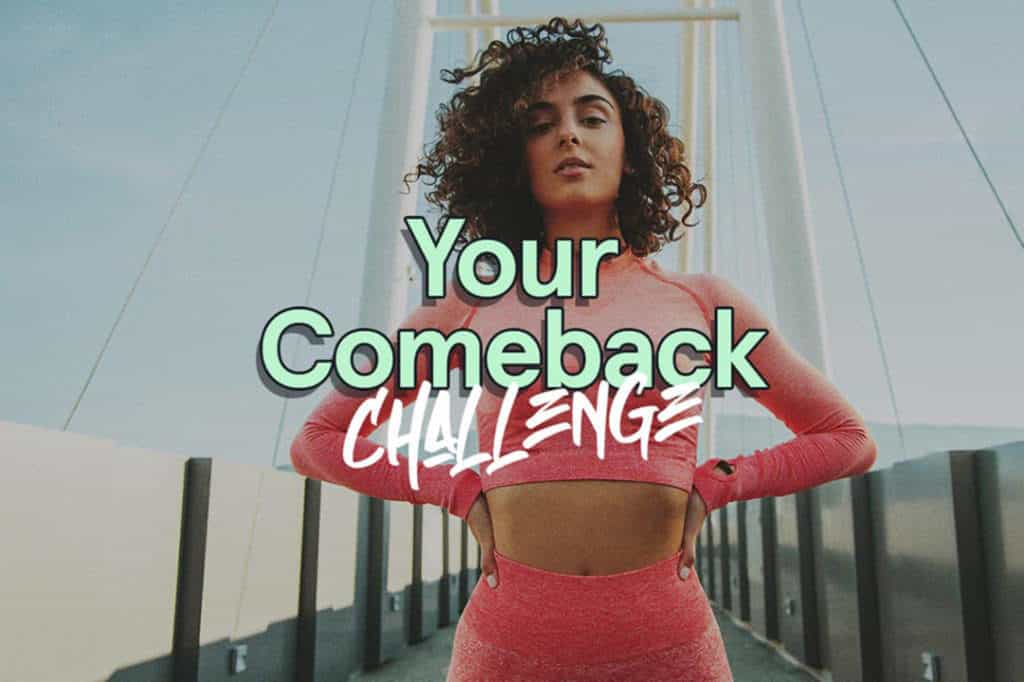On March 8, it is International Women’s Day again. A holiday that invites us to celebrate women in our environment and worldwide. But is that enough? With their achievements and successes, we believe that women can be a true inspiration – for each of us. That’s why five female athletes from our community and beyond share their unique stories with us. Learn how professional rock climber Alma, boxer Dilar, contortionist Catie, Olympic weightlifter Madeline, and dancer Franziska share their passion for sports and inspire others. Perhaps they will also motivate you to try something new and push your boundaries?
Alma’s pure willpower while bouldering
Alma Bestvater is a passionate professional-level rock climber who has become more self-confident and stronger through bouldering. Learn about the challenges she has encountered in the bouldering world and why failure is a sign of courage for Alma.
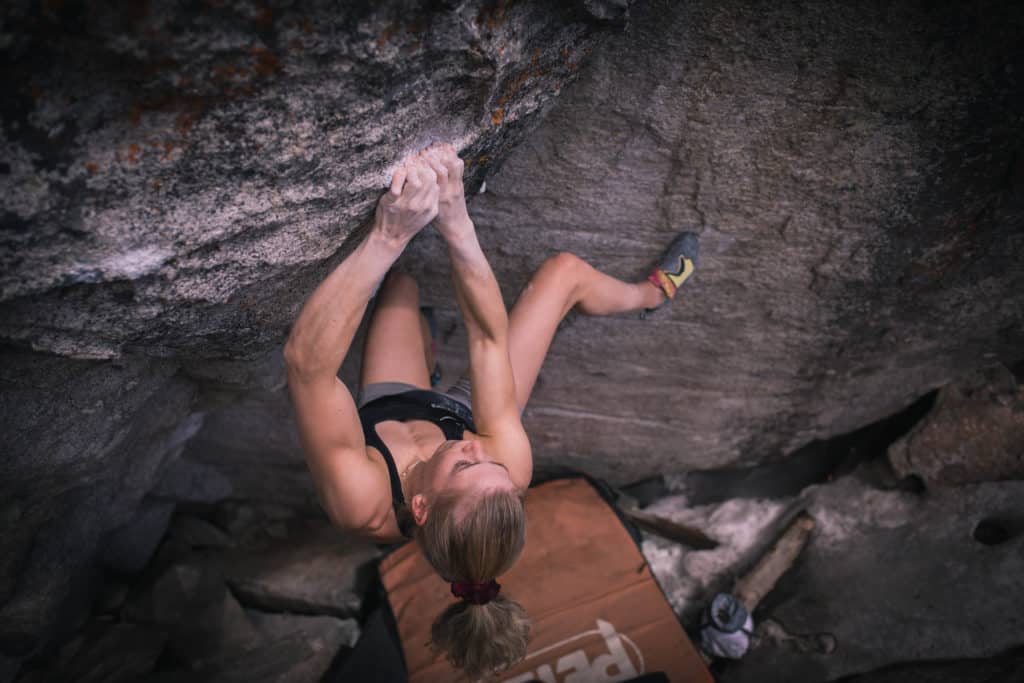
How does bouldering empower you?
“There is hardly anything more fulfilling than investing a lot of hard work into a goal while bouldering and achieving it. These achievements give me the self-confidence to keep going, no matter how distant my goals may seem. That doesn’t mean failure isn’t an option. Failure is one of the most human things, and it’s a sign of courage for me. Whoever fails has really tried to push their limits.”
“For me, failure is a sign of courage. Whoever fails has really tried to push their limits.”
Are you particularly proud of a moment in your bouldering career?
“Good rankings are usually just a snapshot of a single day and don’t show everything that happens in preparation and my head. That’s why I’m very proud of my comeback last year at the European Championships in Munich. The 16th place may seem less successful at first glance compared to my 4th place at the 2019 European Championships and 5th place at the 2020 European Championships. Nevertheless, I exceeded myself the most in 2022, as the preparation was extremely challenging due to a shoulder injury.”
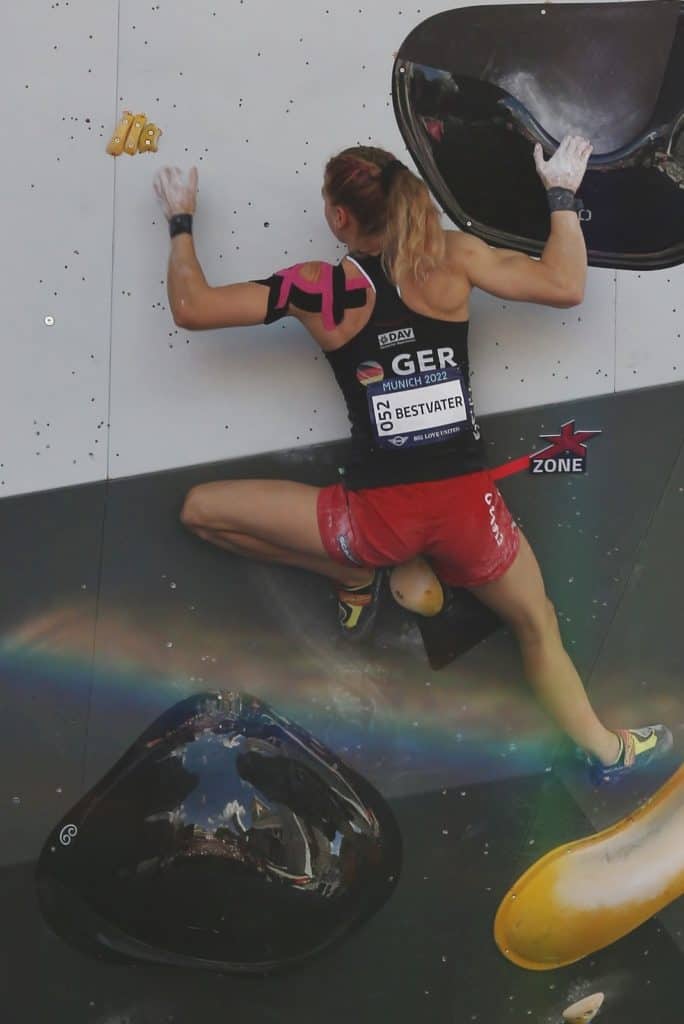
What challenges have you encountered while bouldering, and how have you overcome them?
“For me, dealing with failures, injuries, and performance pressure was a big challenge initially. In competitive sports, you are often only seen as a number in some ranking, and the funding and financial support depend on it. Remembering that I am much more than just that number in the ranking as a person is sometimes not easy. Fortunately, my friends regularly remind me that I have value regardless of my climbing performance and that I am much more than just an athlete.”
“It’s important to remember that as a person, you are much more than a number in a ranking.”
How did you maintain your motivation and focus during your injury mentioned above last year?
“At first, it helped me to permit myself to find the situation shitty and not have to see something positive in it forcibly. The injury basically made me unemployed from one day to the next, and there is no reason to make it look nice.”
What advice would you give to other athletes facing similar challenges?
“You should first give yourself time to be frustrated, sad, and angry. Sooner or later, it will help to accept the situation and make the best of it. I was fortunate to realize how much I love climbing. It is still a great passion of mine, and I felt the need to climb again. This goal helped me to get through rehabilitation. So my advice is: Give yourself the right to be frustrated. And, as cheesy as it may sound, follow your heart and your passion.”
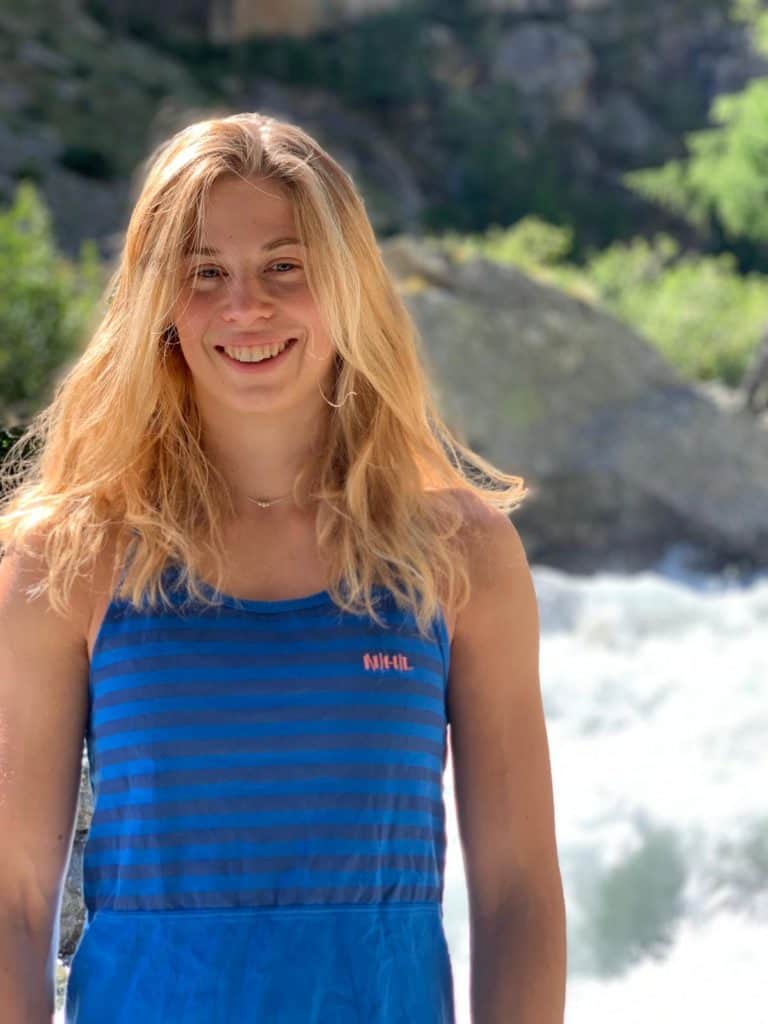
Who are the women that inspired you?
“I am inspired by all women who just do their thing and don’t care what others think of them. Women who dare to push boundaries, be exceptional, and not conform to the norm.”

How Dilar punches with heart and fist for equality
Boxer, fighter, and a true inspiration! For Dilar Kisikyol, boxing is more than just a sport – it’s a passion that strengthens her confidence and determination and enables her to live a self-determined life.
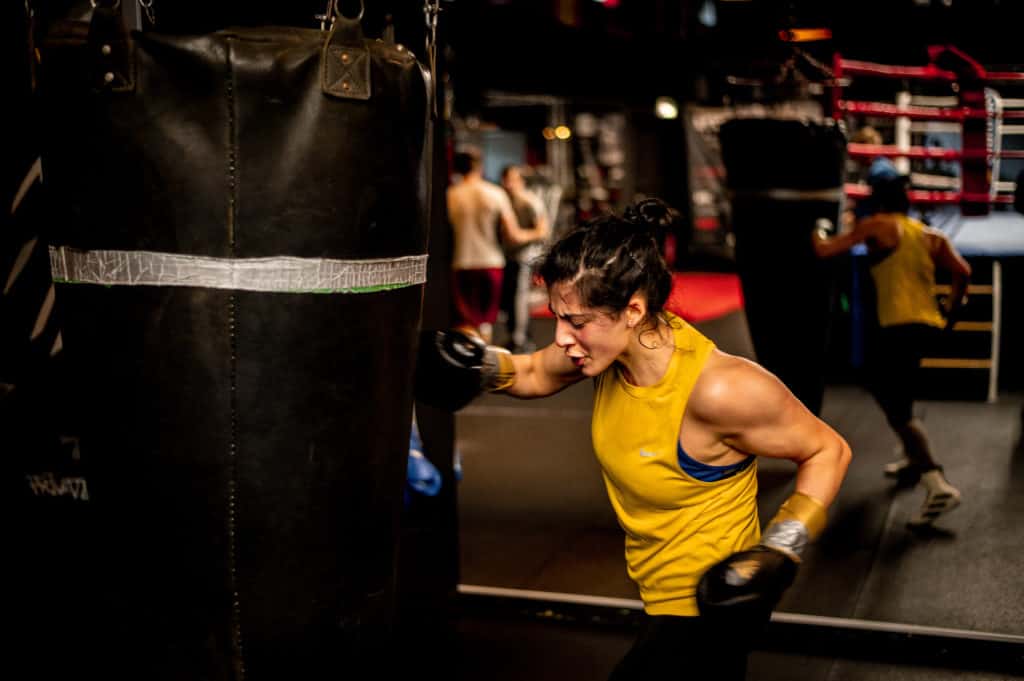
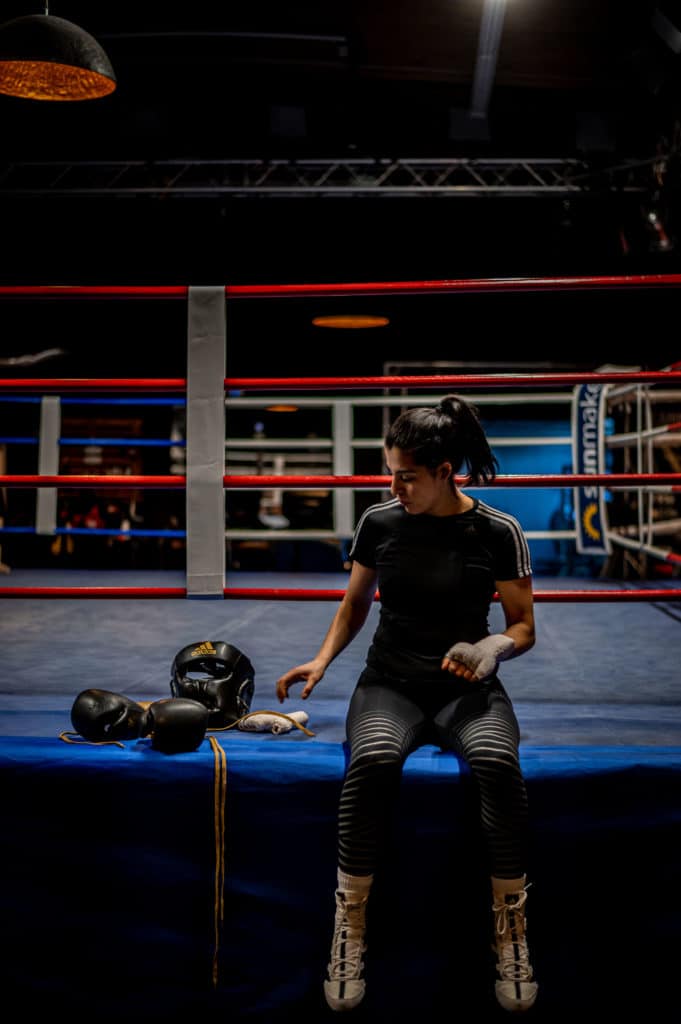
Dilar, what role do sports play in your life?
“Boxing has enabled me to live a self-determined life. I have learned to assert myself and follow my path. I have become more disciplined, confident, and ambitious. I train my endurance, reaction, and concentration through boxing – all skills I also need for everyday life.”
What inspired you to start boxing?
“I can still remember watching the movie Million Dollar Baby. A neighbor was also boxing then and convinced my mother – who was initially against it – to let me start boxing. I managed to fight against prejudices and in a male-dominated sport.”
“Boxing has enabled me to live a self-determined life. I have managed to fight against prejudices and in a male-dominated sport.”
Is there a moment in your career that you are particularly proud of?
“In November 2022, I won the WIBF World Championship in lightweight. This moment showed me that my path will be successful if I stay true to myself and don’t give up.”
You started the “Du kämpfst” project to promote integration, inclusion, and female empowerment. How did you come up with the idea?
“Boxing has great values that can be combined with social work. Boxing has always given me a lot and made me who I am today. The project “Du kämpfst” is based on combining educational elements and boxing. The focus is on inclusion, violence prevention, and female empowerment for everyone in our society. Because I’m convinced that sport connects and enables social participation.”
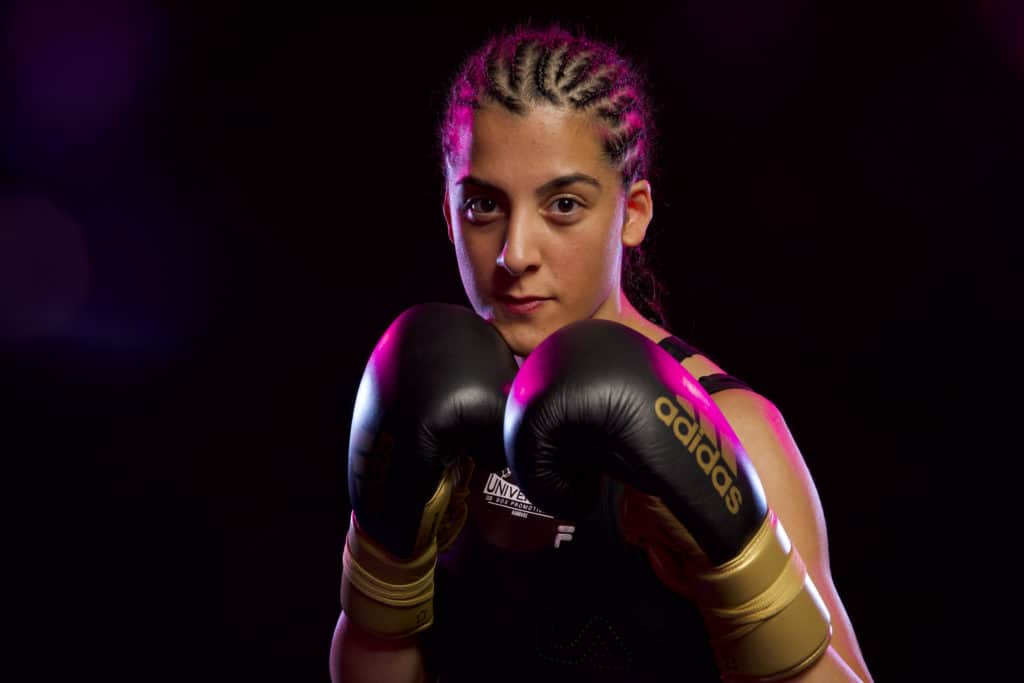
Which women have inspired you?
“Regina Halmich has always been a role model because she made women’s boxing big in Germany. My older sister has greatly inspired my life because she has set a good example and always fought for her goals. And, of course, my powerful mother has inspired me. She raised four children, including triplets, and taught them the right values and norms for life.”
Bending Beyond Limits: Catie’s Contortionist Adventure
Catie Brier, a professional contortionist and now trainer, defies the law of physics. She bends, twists, and contorts herself and others into mind-blowing positions. But it’s not just her physical prowess that makes Catie so inspiring.
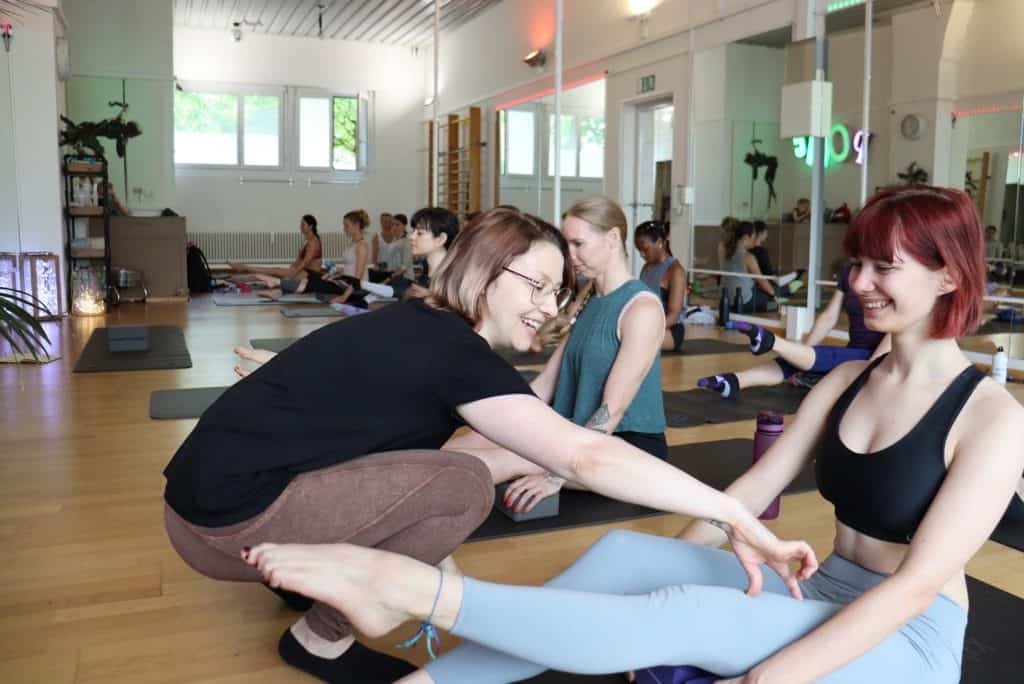
Catie, how does teaching (and training) empower you?
“Teaching flexibility (and contortion) is easily one of the most empowering things in my life. Going into a session with a student and knowing I can use my years of experience, successes, and failures to help them reach their goals feels good. I don’t always feel super confident in my day-to-day life, but when I snap into teacher mode, I feel unstoppable. I had similar experiences with performing. When training contortion, you spend a LOT of the time doubting yourself or being frustrated that you have a hard time learning a certain trick. But when it all comes together, and you’ve finally nailed the trick – that moment is powerful.”
Who are the women that inspired you in your life?
“One is definitely my mom. She grew up dancing and performing but gave it up to be able to take care of my brother and me. When I was around ten or eleven, she decided to return to the dance world and opened her own dance studio. It was so fun for me, but a lot of hard work for her. She taught, choreographed, directed, and marketed everything herself at the beginning, which was really inspiring to me (and certainly a big part of my passion for doing everything all the time).”
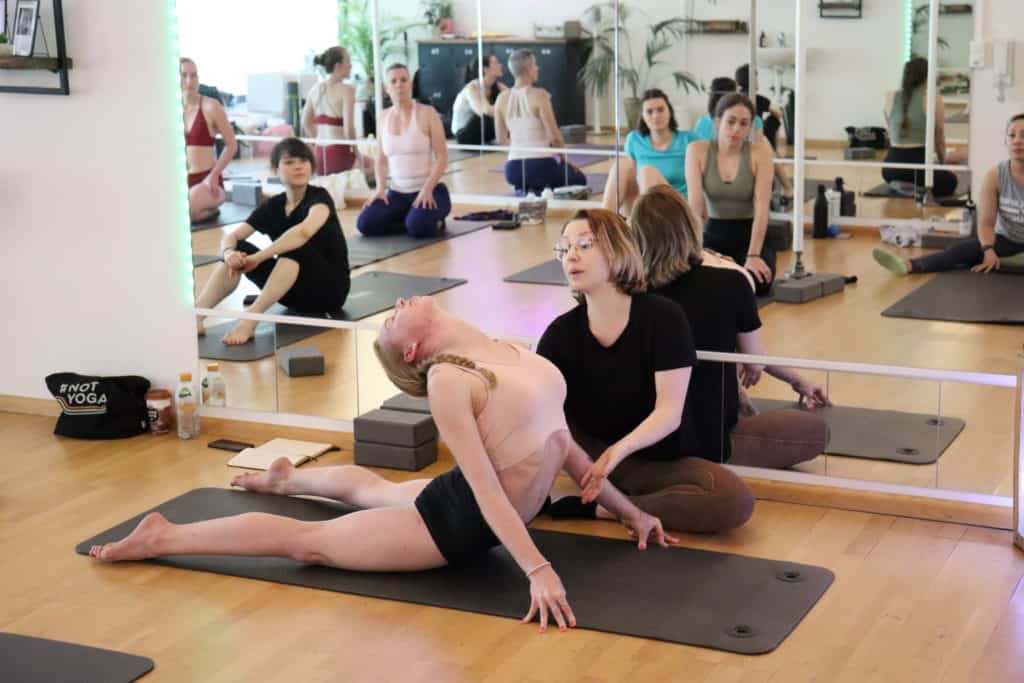
Is there a specific moment or accomplishment in your sports career that you are particularly proud of?
“I used to offer a four-week contortion intensive. It was the only month-long intensive program designed specifically for contortionists, and I ran it five years in a row until I moved to Germany and no longer had the resources to offer it. The final year was super empowering for me. I knew how to run the program well at that point and was able to focus more on helping the students personally and guiding them through the process.”
What challenges do women and girls face in the sports industry?
“I felt like in contortion training, if men came in, they could get strength-based tricks a lot easier. For example, there is a specific push-up where you start in a chest stand on the floor, then press to a handstand. I trained this for three years and never mastered it. But every male that came in would get it in a matter of months.”
And how have you overcome them?
“I wish that someone had taught me that I would need to condition a lot more and do weight training to keep up with the strength of my male counterparts.”
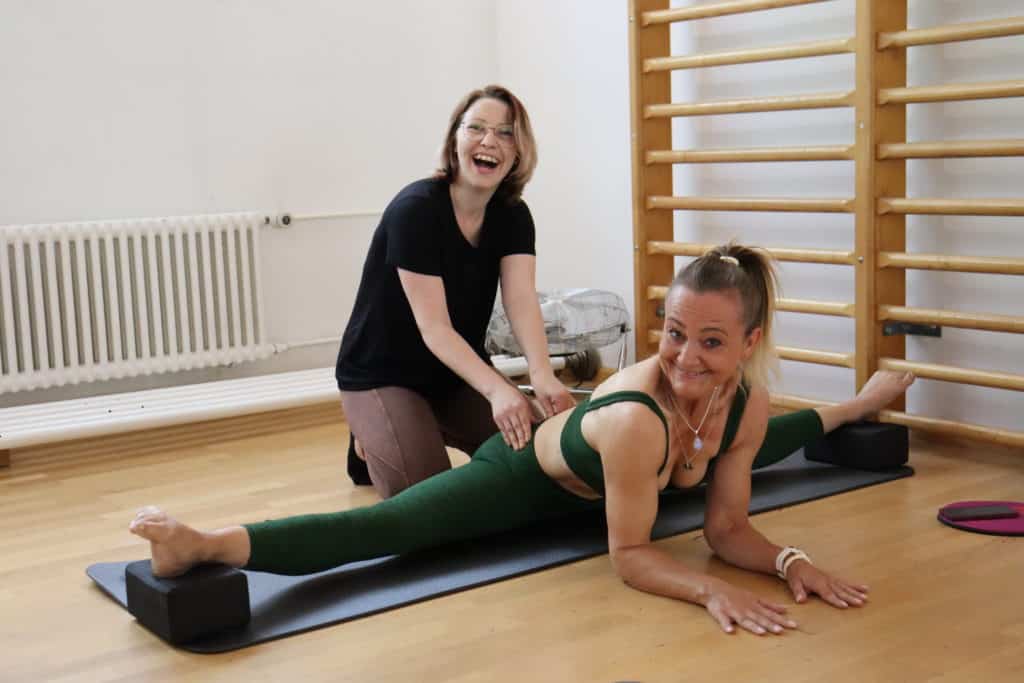
Do you have any advice that has helped you on your journey so far and could help other women?
“The greatest advice that I learned over the years is: Don’t be afraid to ask for help! When I first started seriously training contortion, I was scared to ask for help. My body hurt, and I was worried that saying it out loud or expressing concern would make me look weak. I was worried that my coach wouldn’t want to work with me anymore or that he would push me harder because I said I was in pain. Ultimately I have just spoken up because he injured my back. I honestly see asking for help and getting it as empowering. It makes me stronger to work with people who know more/different things than I do.”
“Don’t be afraid to ask for help! It makes you stronger.”
From the office to weightlifting: How Madeline breaks boundaries
Despite her office job, Madeline Trodtfeld manages to continue her training at a professional level. Olympic weightlifting is her outlet in her often hectic everyday life.
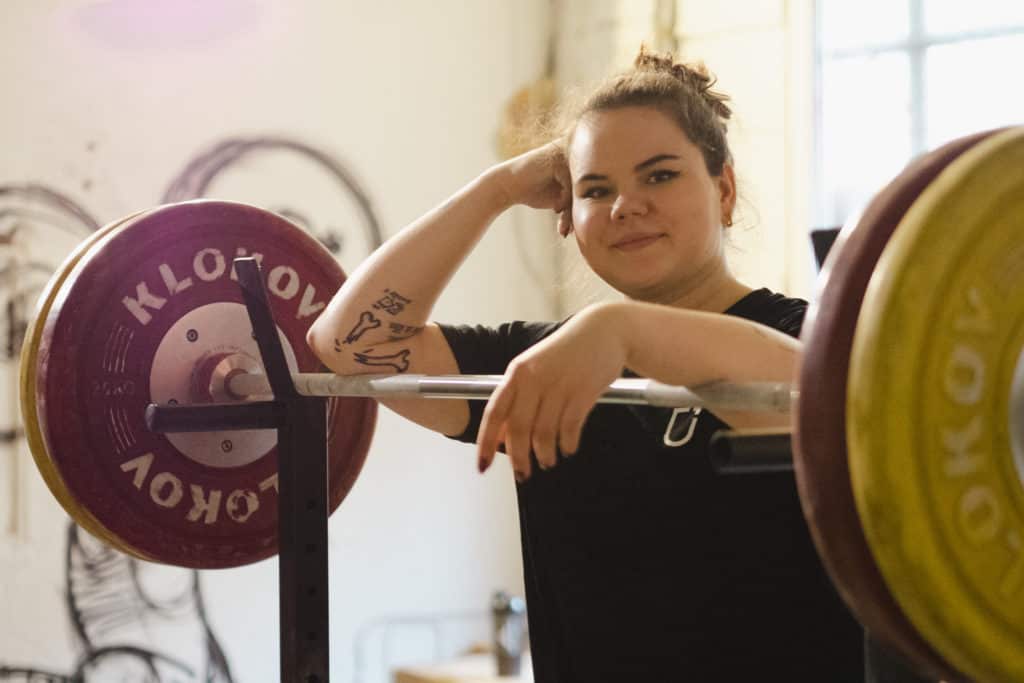
Madeline, how does Olympic weightlifting empower you?
“Olympic weightlifting gives me a new perspective on my body and abilities. I have become much more self-confident and have learned to love my body. Through weightlifting, I believe in myself more. At the same time, I have realized that I am capable of more than I ever thought.”
“Olympic weightlifting has shown me that my body is capable of much more than I ever thought.”
What challenges have you faced as a woman in weightlifting, and how have you overcome them?
“Fortunately, not many. However, I sometimes experience that other people do not consider my body to be ‘fit,’ and I am underestimated or not taken seriously. In addition, I often hear: ‘Don’t get too muscular! That’s not pretty anymore!’ By now, the phrase goes in one ear and out the other. Only I decide about my body.”
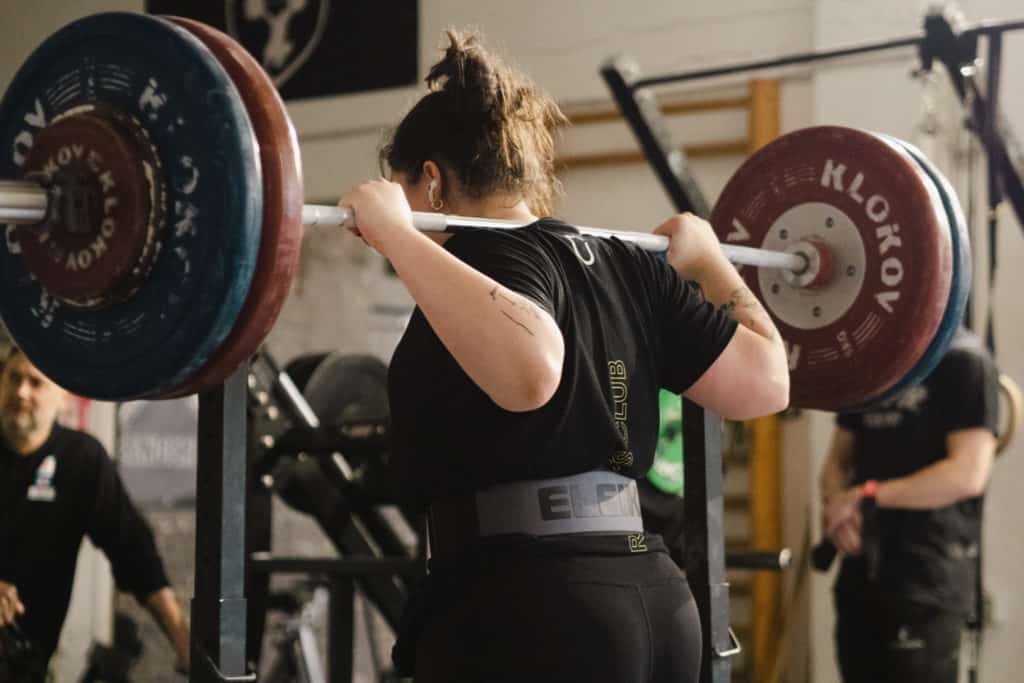
What advice do you have for young girls and women interested in weightlifting?
“Go for it! Don’t be afraid of becoming ‘bulky.’ Unless you specifically train and eat for it, you won’t look that way from strength training. If you don’t feel comfortable training in a male-dominated gym, look for alternatives such as women-only fitness studios or certain CrossFit, weightlifting/powerlifting, or boxing studios.”
You work in an office during the day and still pursue sports professionally – how do you balance that?
“I think you have to be a little crazy. On the other hand, sports are a total balance to my normal life. Work, in turn, is a balance to sports. I can forget about the pressure and my thoughts about sports for a few hours when I’m at work. When doing sports, I no longer think about work and can switch off well.”
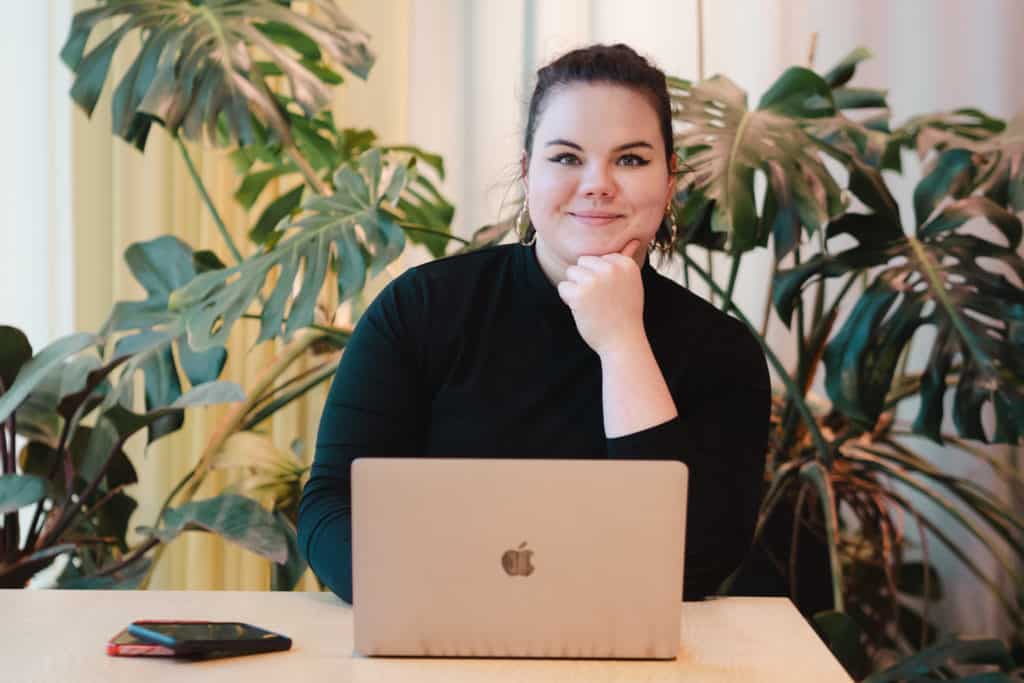
Powerful dance movements and inspiring messages from Franziska
Franziska Schradi is a passionate dancer who primarily teaches the dance style of Reggaeton. Although Reggaeton is often viewed as male-dominated and sexist, Franziska has chosen this dance style to empower women and challenge gender norms. In her classes, she places particular emphasis on ensuring that the music and movements are not only powerful and inspiring but also convey positive messages.
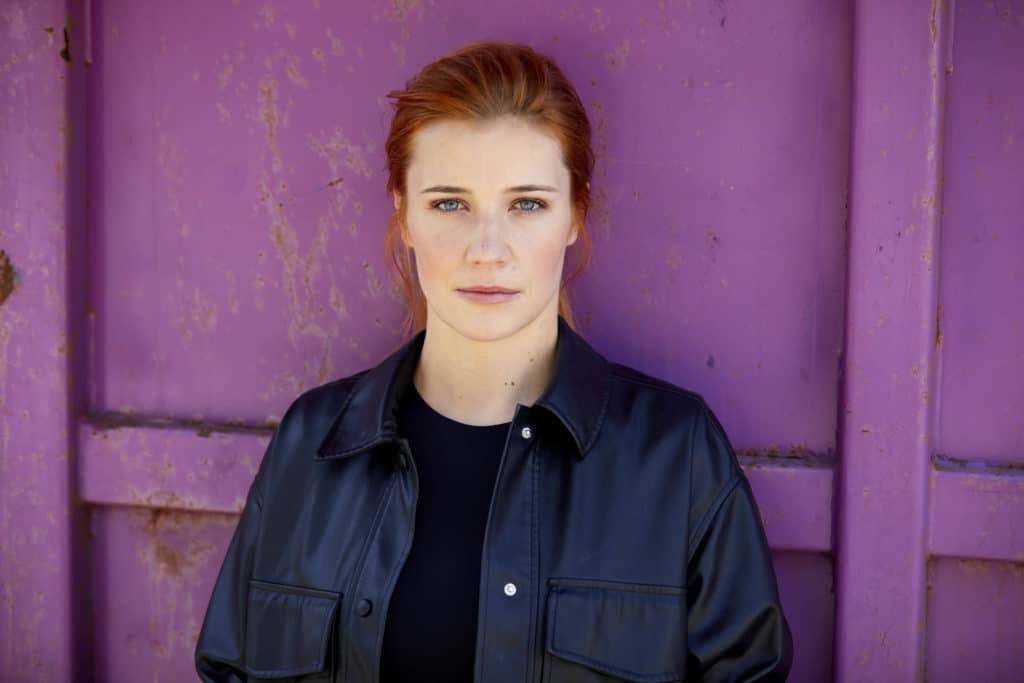
How does dancing empower you?
“Dancing is a space where I can experiment and make mistakes. The combination of training and expression means freedom and is my greatest outlet to unleash my potential.”
Reggaeton is known to be male-dominated and, unfortunately, often sexist, so why did you choose this style to empower women’s self-esteem?
“Those who love Reggaeton know that mainly the rhythm triggers a special feeling in us. The Reggaeton beat almost demands that we move in a feminine way. The Reggaeton culture has also changed and now offers lyrics on various topics. Nowadays, many female artists have established themselves with feminist lyrics. But also artists like J Balvin have released Reggaeton about love. In my class, I pay attention to the song selection so that the rhythm and movements strengthen confidence and spread the right messages. Men who want to try the style are also welcome.”
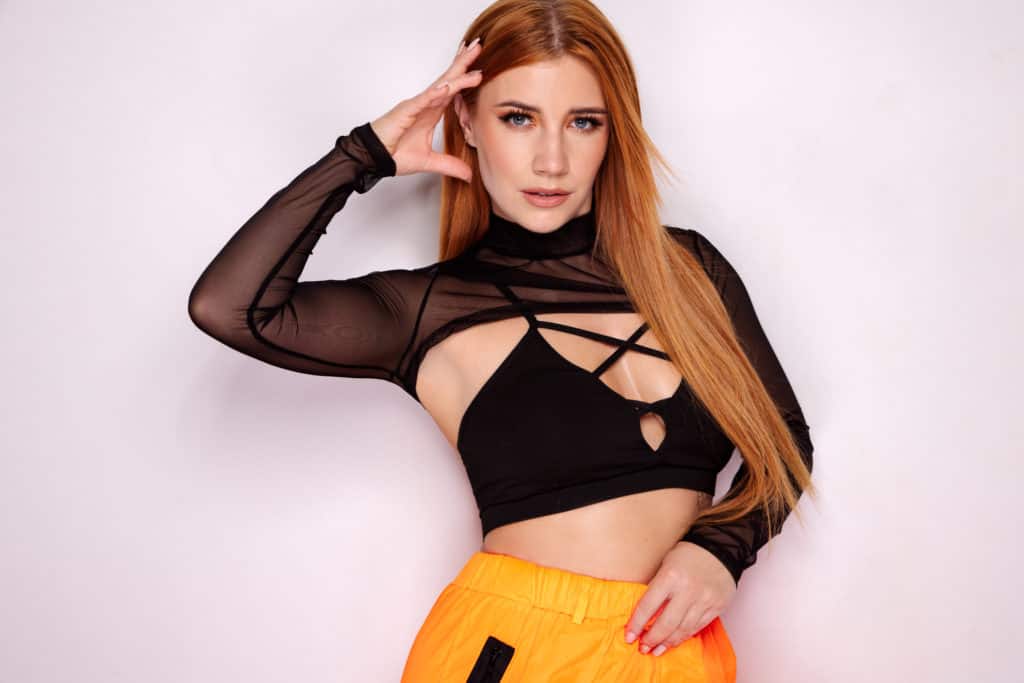
What challenges have you faced as a woman in the dance scene, and what tips would you give beginners?
“Since I did competitive sports before dancing, I often saw other people as competition. That can happen in Berlin – there are many good dancers and few well-paid jobs. In such moments, I always remind myself why I dance – out of passion and the need to create something individual and not to impress anyone. Dancing is not a sport but rather an art for me. My class should be a safe space for the love of music and movements. That’s also my advice: always remember why you dance and dance for yourself, not to be the best.”
“Dancing is not a sport for me, but rather an art. I don’t dance for others, but for myself and to follow my passion.”
How does dance affect confidence and self-presentation?
“Through dance, we create something aesthetic with our bodies without external influences. We discover new qualities and strengths that can impact our lives.”
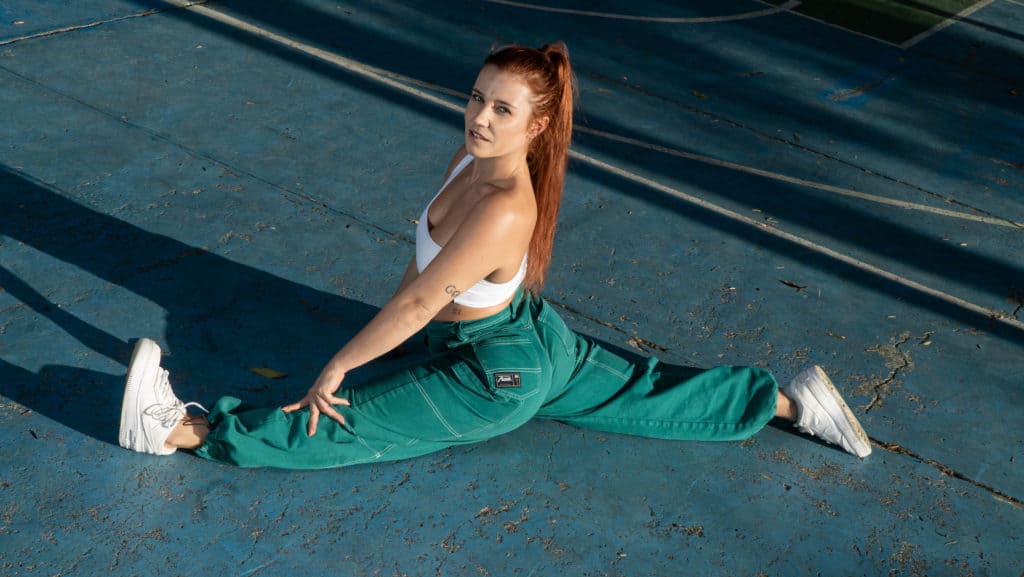
Which people have inspired you in your life and made you the person you are today? Share your story with us in the comments!



